It’s impossible to argue with the fact that all jobs are important. We see people specialize in different things every day. They could be doctors, school teachers, cashiers, or cleaners. All jobs contain things that outsiders have no idea about.
We at Bright Side have found Internet users of different professions that revealed the invisible side of their jobs. And in the bonus section, you’ll find a tweet about the difficulties that shop assistants have to deal with.
“My sister works in a photo center and this is who she was asked to take a picture of.”

This is the hand of a doctor after removing his medical gloves after 10 hours of being on the clock.
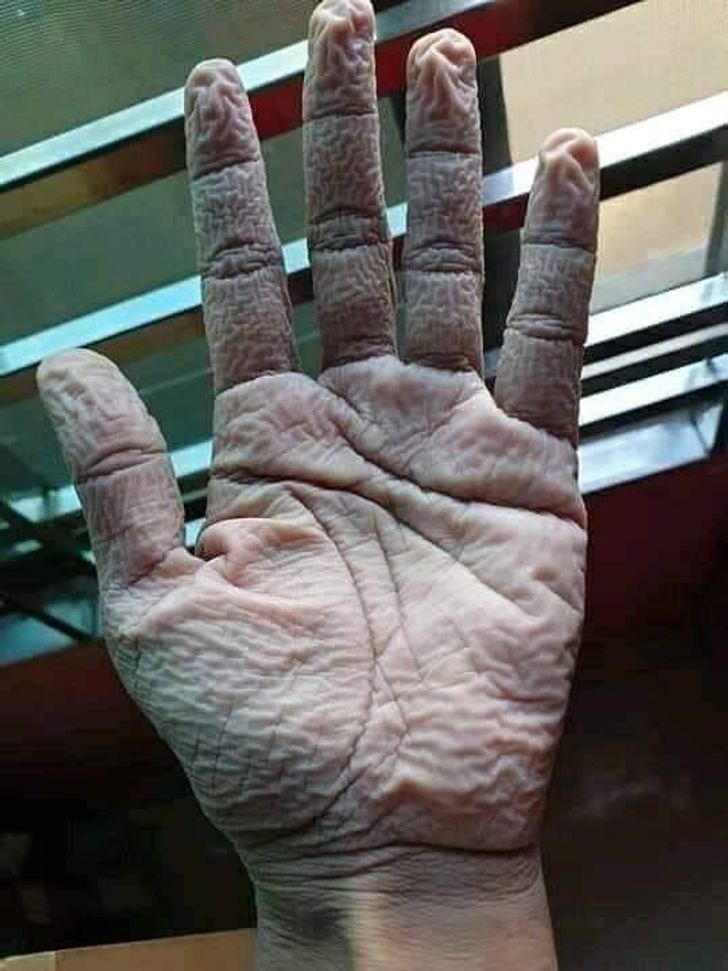
“A group of teenagers came in just to trash the theater. I was one of the people that had to clean it.”

“I work in the Arctic and Antarctic and find it much more convenient to wear my watch on a lanyard than on my wrist because of all of the layers I wear.”
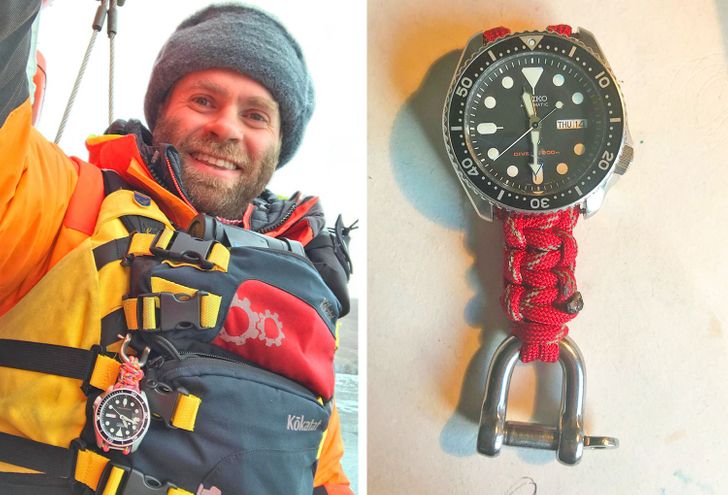
“This watch has been to Antarctica countless times and to the geographic North Pole 12 times.”
“Be nice to your trash man when it’s raining and it’s 30 degrees outside. We’re not invincible. This is my hand after working 4 hours in bad weather.”
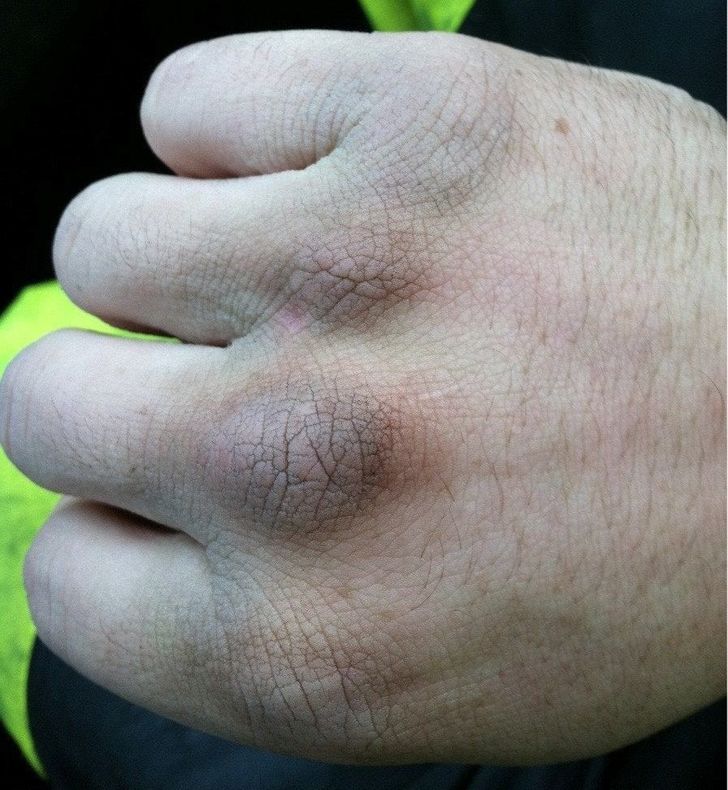
“I work at a hotel these days and went to see if a room was mislabeled as dirty. This is what I found.”

“I kept my hotel key cards from my first year working for the airlines.”

“Working hard as a truck driver has its advantages: the views!”
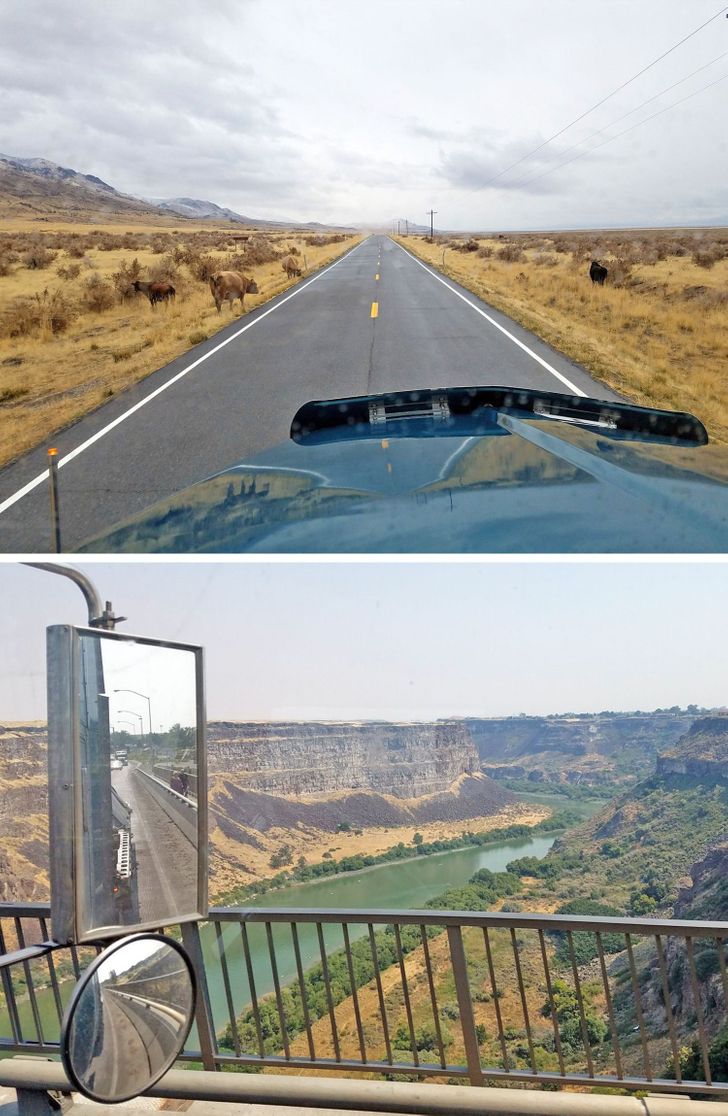
“My mom works at Amazon and she sent me a photo of one of the trucks she loaded.”
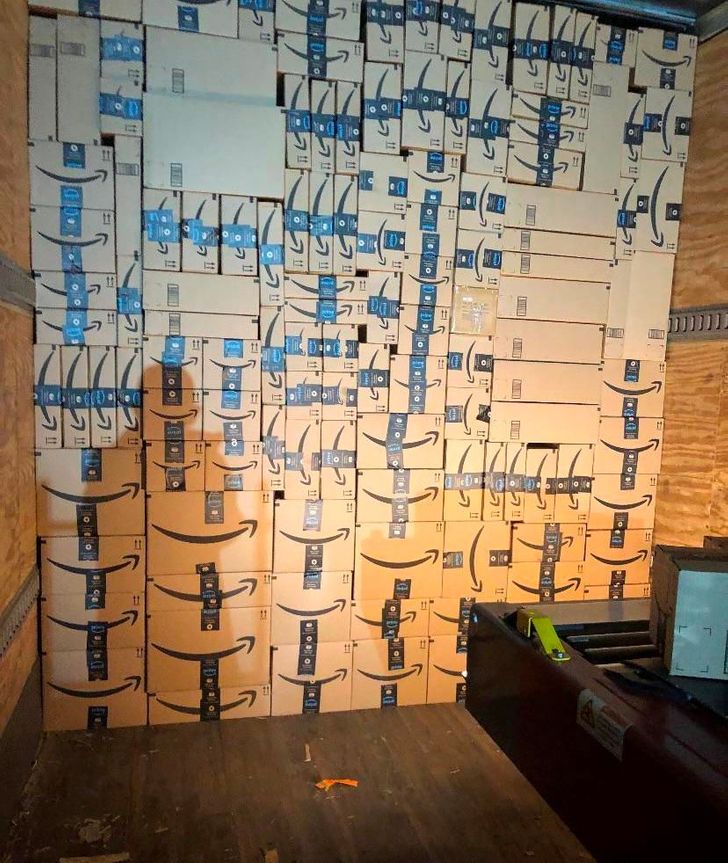
“I work at a call center. Whenever I get a particularly rude caller, I like to draw what they might look like. Here’s Lorraine from today.”

“I work in a fast-food restaurant, and this is our broom. My boss says it’s too expensive to replace it, yet he drives a Lincoln.”
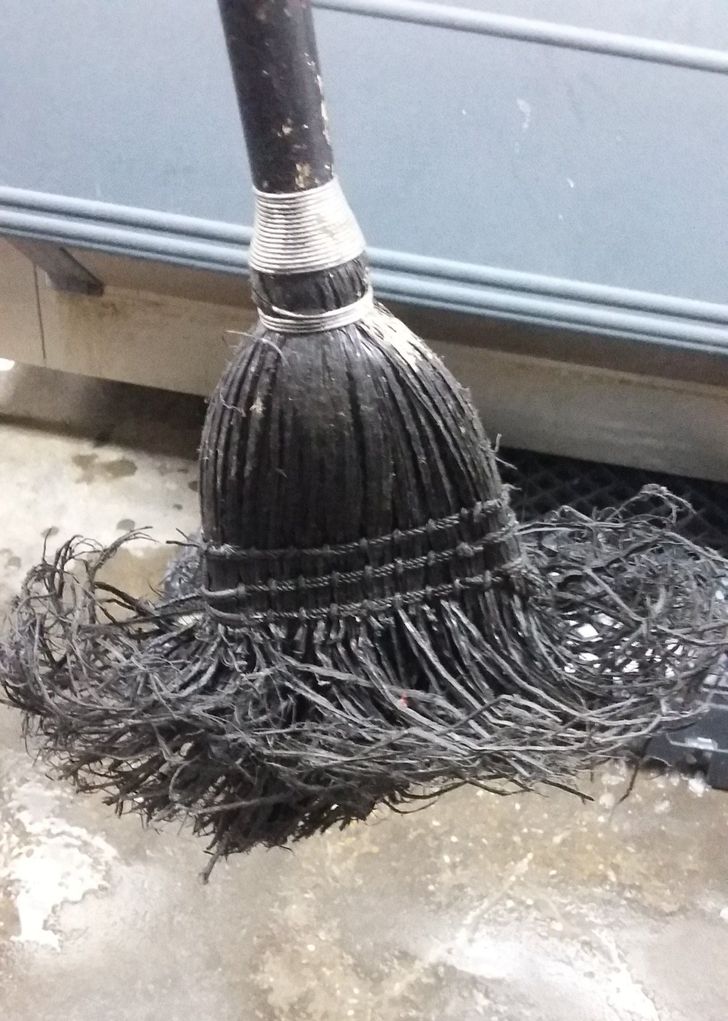
“I work in the film industry and I’m usually too shy to ask for a picture with an actor, but I had to get one with this little guy.”

“Every staple I removed in one year at my boring office job”
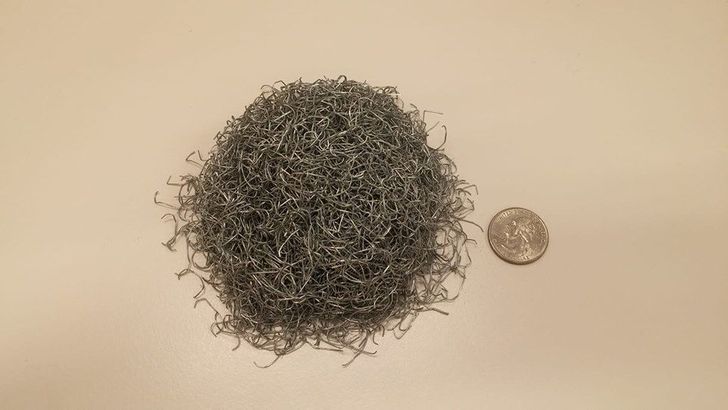
“I work in a −25°F freezer every day.”
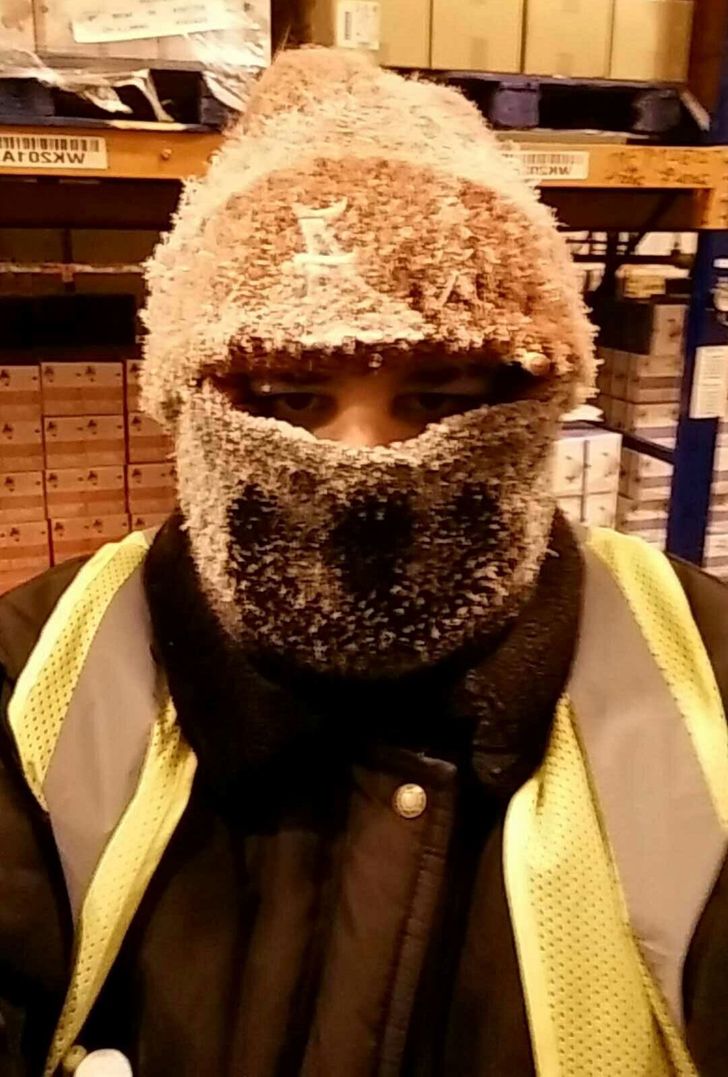
“I work at a cat shelter. These are the ’can we keep him?’ photos I sent to my partner. It worked.”
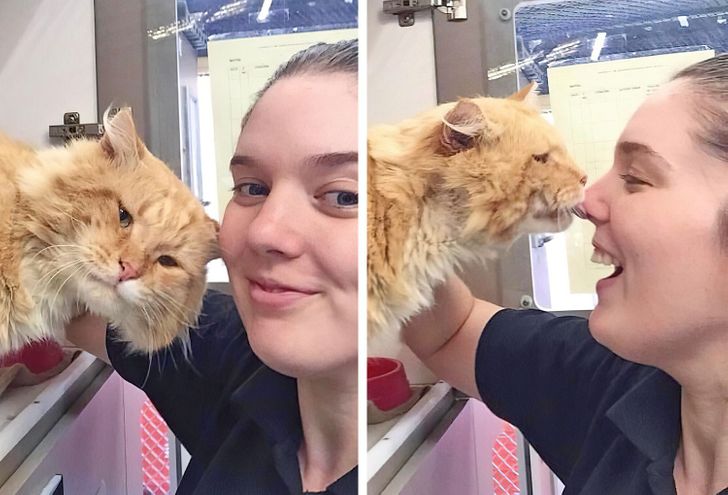
“My job involves putting labels on boxes. I hold them with my left hand and put them on the box with my right. This is what my ’clean’ hands look like.”
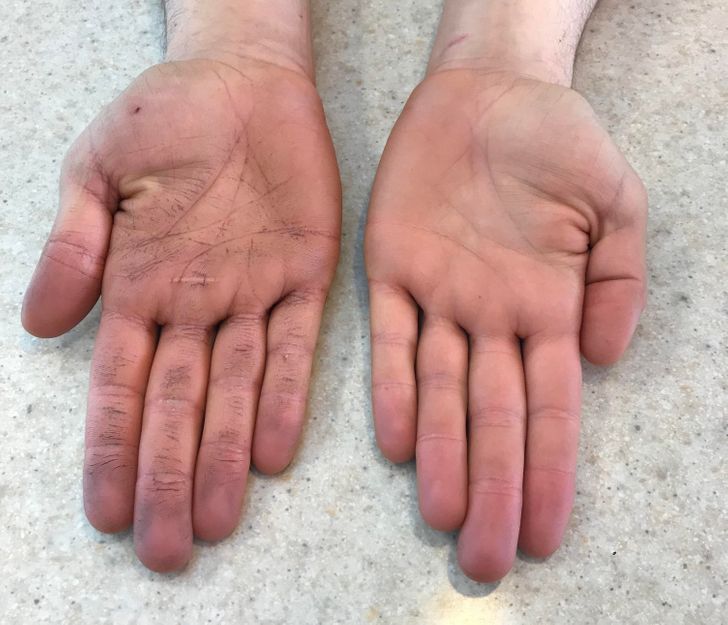
“I got transferred to a new location at work. This is my new break ’room.’”
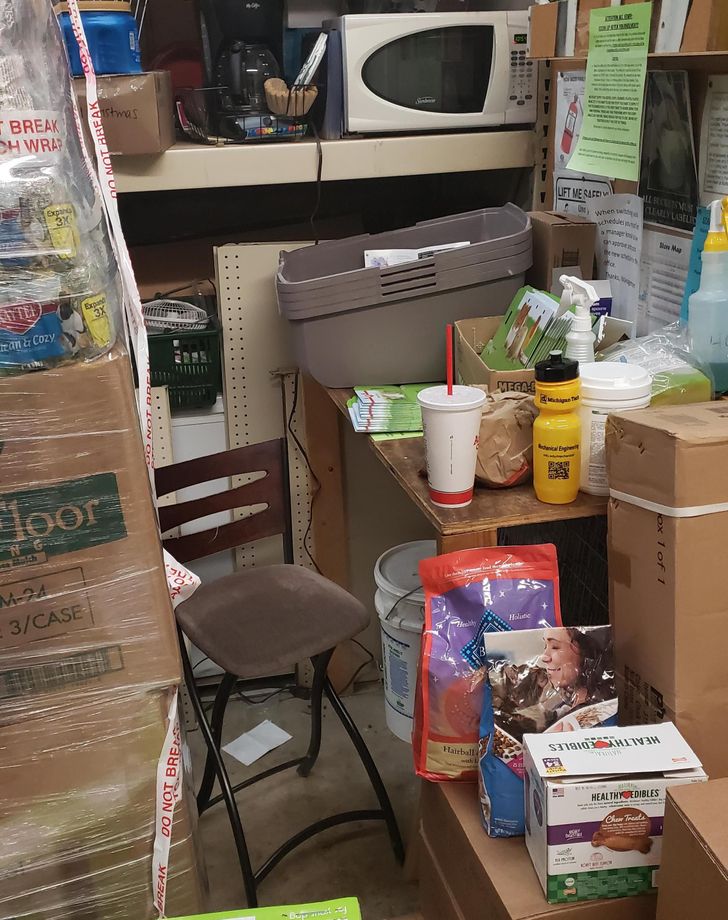
You can work anywhere if you’re a programmer.
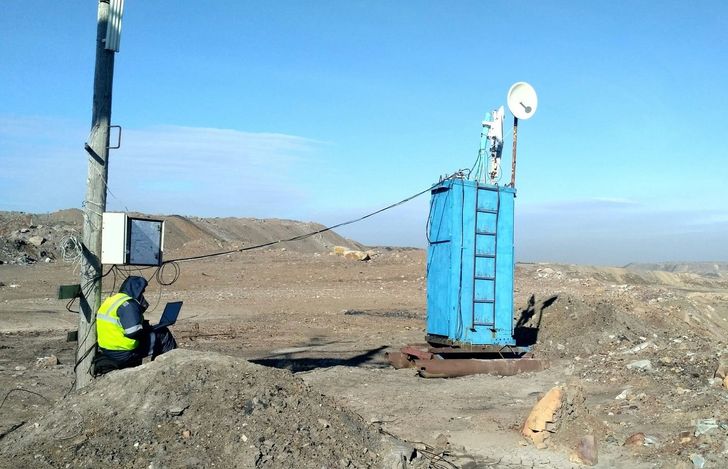
“I work as a professional princess on weekends. My kitty insists on inspecting each costume for detail accuracy.”

“I work at a hotel — a guest left this when they checked out.”

This is a bathtub full of playing cards.
“So, I work in a movie theater. ’Family of the Year’ award goes to these guys!”

“I’m a seaman. We live alone in these rooms. Depending on your position, the room can be better and bigger. This is mine.”
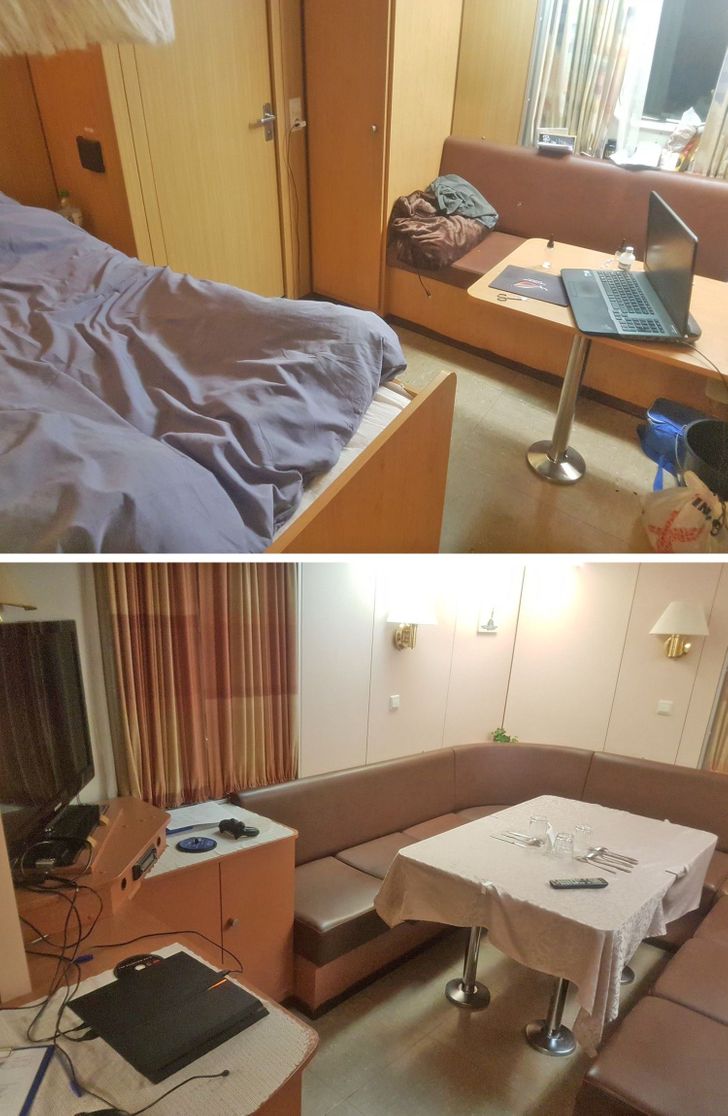
“I have my own toilet and shower.”
“Took this photo yesterday at work. Thought I’d share it with you guys.”

Bonus: the harsh work of shop assistants
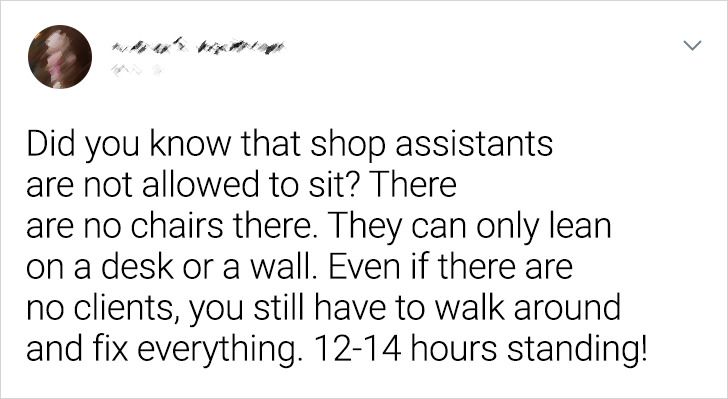
What is your job and what downsides are there to it?
Preview photo credit AwanishSharan / Twitter, SubzeroMK / Reddit
Paris Hilton Claps Back at Trolls Who Criticized the Size of Her Son’s Head
Paris Hilton has had enough people online telling her to take her son to a doctor because of how his head looks. After weeks of heated debate among fans, she finally spoke about it candidly and addressed the haters directly.People were concerned about Phoenix’s health.
Paris Hilton’s journey into motherhood began on a memorable day in January of this year when she welcomed her precious son, Phoenix, into the world. The news of her baby’s birth was met with an outpouring of love and well-wishes from fans and friends worldwide.
Throughout these six months, she has shared precious moments of their mother-son bond, providing fans with glimpses of their beautiful connection. Yet, alongside the happiness, concerns have arisen among some of Paris Hilton’s devoted followers.
Paris Hilton’s heartfelt post about her baby boy, Phoenix, elicited a mixed response in the comments. While many expressed their love and admiration for the adorable child, some couldn’t help but raise concerns about his well-being, urging her to “bring him to the doctor!”
One comment said, “You need to give your baby tummy time. He is already showing signs of a flat head.” Another comment even requested Hilton: “Phoenix is extremely cute, but please consider having him check.”
She got tired of the criticism and responded.

Paris Hilton has defended her baby boy on social media after people commented about his head size. Responding to online comments, she expressed her disappointment with the negativity and stated that her child is perfectly healthy. “There are some sick people in this world. My angel is perfectly healthy,” she wrote on TikTok. “And yes, of course, he has been to a doctor, he just has a large brain.”
Talking about working moms, supermodel Naomi Campbell has made headlines as she recently welcomed her second baby at the age of 53. The news has captured the hearts of fans worldwide, celebrating the joyous moment in her life.
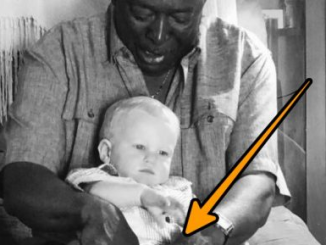


Leave a Reply